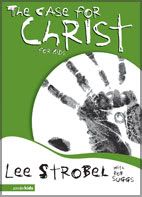Warning: VERY long post ahead!
You’ve probably heard the preacher say it. It goes something like this when finding a particular three-letter word in the Bible:
There’s this little word that I want you to notice. A – L – L. We know what it means in English. It means “all.” Well, I did a little study in the Greek language and discovered what it means in Greek. It means “all.” Not “some.” Not “many.” Not “most.” All means “all” and that’s all all means.
Determining whether or not this summation is accurate is very important, especially because it is often voiced after reading the following two statements:
- I Timothy 2:3-4 - This is good and acceptable in the sight of God our Savior, who desires all men to be saved and to come to the knowledge of the truth.
- 2 Peter 3:9 - The Lord is not slow about His promise, as some count slowness, but is patient toward you, not wishing for any to perish but for all to come to repentance.
Before we look at those two verses to see how the biblical authors used the term “all” (which is “pas” in the Greek), we need to examine a few other passages to show some potential problems with this simplistic understanding and lay a little foundation for how we interpret (if we want to be consistent) the two main passages above.
First, look at the first chapter of Philippians. In the first verse, Paul states that he is writing “to all the saints in Christ Jesus who are in Philippi, including the overseers and deacons.” We have just established the audience. Then, as he continues to write, Paul addresses this specific audience repeatedly using very specific pronouns.
- In 1:3-4, Paul writes that he thanks God for “you” and that he prays with joy in his prayers for “you.”
- In 1:6, Paul is confident that God will complete the good work that He began in “you.”
- In 1:7, he says “you” are all partakers of grace with him.
- In 1:29, Paul says it is for “you” that is has been granted for Christ’s sake, not only to believe in Him, but also to suffer.
- In 2:15, he then tells the readers to do all things without grumbling so that “you” may prove “yourselves” to be blameless and innocent, children of God in the midst of a crooked and perverse generation, among whom “you” appears as lights in the world.
In 2:20, the subject matter of Paul's thoughts change. Paul starts talking about “them.” He says “'they' all seek after 'their' own interests, not those of Christ Jesus.” It seems quite evident that Paul is talking about two separate groups of people here: “you” and “them.” There is no way you will confuse the two groups in this chapter. I've not proved anything here - just laying some foundation that I hope you will remember.
Now, look at Romans 11:7-13. Paul speaks of some Israelites, saying that God gave “them” a spirit of stupor. He quotes David in saying “Let ‘their’ table become a snare . . . and a retribution to ‘them.’” He continues, saying, “Let ‘their’ eyes be darkened . . . bend ‘their’ backs.” Paul says that “they” did not stumble so as to fall. Instead, Paul asserts that it is by “their” transgression that salvation has come to the Gentiles.
Then, Paul says in 11:13 “But I am speaking to ‘you’ who are Gentiles.” Do you see how the conversation has turned? Different pronouns to speak of different groups. It is again very evident and undeniable. Do you agree? Nothing more to say here - only laying more foundational layers.
Let’s look at just one more important example - 1 Peter. It is important because it comes from the pen of the man who wrote one of the main verses mentioned much earlier. Peter, in his first letter, wrote to “those who reside as aliens, scatter throughout . . . who are chosen according to the foreknowledge of God the Father” (That is a discussion for a later time but it will come). What does Peter say about these chosen scattered aliens?
- In 1:3, Peter writes that God is to be blessed because He has caused “us” to be born again through the resurrection of Jesus Christ . . . to obtain an inheritance that is imperishable. Peter is lumping himself with this group.
- In 1:6, Peter tells this same group that because of what God has done, “you” can rejoice greatly even though “you” have been distressed by various trials.
- In 1:8, Peter says that even though “you” have not seen Him, “you” love Him.
- In 1:14, Peter calls his readers “obedient children” who should not be conformed to the former lusts which were “yours” in “your” ignorance. Instead, “you” shall be holy because “you” were not redeemed with perishable things but with precious blood. Peter keeps this up throughout the rest of chapter one and into chapter two.
Then, in 2:12, Peter writes this: “Keep ‘your’ behavior excellent among the Gentiles, so that in the things in which ‘they’ slander ‘you’ as evildoers, ‘they’ may on account of ‘your’ good deeds, as ‘they’ observe them, glorify God in the day of visitation.”
Again, it is an elementary observation that Peter is writing now of two completely distinct groups: “you” and “them.” It is undeniable and hardly needs mentioning except for the foundational application that comes next.
The above needed mentioning because of the two verses mentioned at the beginning of this long post, namely 1 Timothy 2:3-4 and 2 Peter 3:9.
First, since we just finished reading from Peter’s pen, let’s continue on to his second letter. In the first verse, Peter says he is writing to “those who have received a faith of the same kind as ours, by the righteousness of our God and Savior, Jesus Christ.” The audience is set – Peter is writing to fellow Christians. Again, he includes himself in this group. He will do so often.
- In 1:3, Peter says that God has granted to “us” His previous and magnificent promises so that “you” may become partakers of the divine nature, having escaped the corruption of the world.
- In 1:5-7, Peter writes of “your” faith and “your” moral excellence and “your” knowledge and “your” self-control and “your” perseverance and “your” godliness and brotherly kindness. This sounds like decidedly Christian characteristics.
- In 1:10, Peter calls his readers “brethren” and encourages them to be certain about God’s calling and choosing “you.”
From all this, we can discern that Peter is addressing a particular group. Then, in 2:1, Peter starts talking about another group – false prophets. He says the following of this new group:
- In 2:2, he writes that many will follow “their” sensuality and because of “them” the way of the truth will be maligned.
- In 2:3, “they” will exploit “you” with false words because of greed and “their” judgment and destruction are certain.
- In 2:10, he says that because these in this different group are “daring [and] self-willed, ‘they’ do not tremble when ‘they’ revile angelic majesties.”
- In 2:13, “they” count it a pleasure to revel in the daytime. “They” are stains and blemishes, reveling in “their” deceptions, as “they” carouse with “you.”
- In 2:15, Peter writes more about this group: "forsaking the right way, 'they' have gone astray, having followed the way of Balaam."
- In 2:17, Peter writes “these” are springs without water. “They” entice by fleshly desires.
No one would think Peter is still speaking of "those who have received a faith of the same kind as ours."
Finally, in chapter three, Peter returns his attention to the original audience but does not forget about “them.”
- In 3:2, Peter says “you” should remember the words spoken by the prophets.
- In 3:3, Peter says that in the last days, mockers will come following after “their” own lusts. As this group mocks the return of Christ, Peter says that it escapes “their” notice that creation speaks of God.
- In 3:8, Peter cautions the readers to not let a fact escape “your” notice – that a day is like a thousand years to the Lord.
With all this in mind, we are now ready to read and understand Peter’s words in 2 Peter 3:9. He writes “The Lord is not slow about His promise, as some count slowness, but is patient toward you, not wishing for any to perish but for all to come to repentance.”
Now, you see why I went to the trouble of working through those other passages. They have nothing to do with this particular text except to force you to be consistent in how you interpret the Scriptures. We see here that the Lord is patient towards whom? God is patient toward “you.” With all the passages given earlier in mind, who is “you?”
You must be careful here. How you answer this question will determine how you interpret the often misunderstood second half of this verse.
Obviously, “you” refers to the readers of this document – the saints of God. Can anyone deny this contextually? To deny this is to ignore all the evidence to the contrary and arbitrarily assign random meanings to various antecedents. You didn’t do it in the examples given earlier from Romans and Philippians and 1 Peter. Don’t do it now.
With that settled, the meat of the discussion occurs. After this phrase, Peter says that God is not wishing for “any” to perish but for “all” to come to repentance. It is at this point that "all" is said to speak of "every single person who has ever lived or will ever live," including "them."
However, it appears to be that the “any” and “all” are limited by the inclusion of “you.” God does not wish that “any of you” perish but that “all of you” come to repentance. Does that make sense? I think you would, at the very least, agree that this interpretation is plausible. You can not simply dismiss it as Calvinistic proof-texting or philosophical bias - especially since Peter returns immediately back to “you” in 3:11, asking “What sort of people ought ‘you’ to be?”
So, it has taken us a long time to get here but it appears that ALL does not ALWAYS mean "every single person." Sometimes it means "all kinds" or "all types" or "all of this group." It's just like someone sticking his head into a room and saying, "I want everyone to come with me. I'm buying lunch." Just how big a tab will this person have if by "everyone" he means "every single person" in the building, town, county, state, etc., etc., etc. No, we know what he means - "everyone OF YOU."
Now, let’s look at the other passage: 1 Timothy 2. Paul begins the chapter by asked for prayers to be made on behalf of “all men.” Did Paul mean to pray for every single individual alive at that moment? Was he suggesting that Timothy open the phone book and pray through it from alpha to omega?
Of course not. Paul gives us his meaning of “all” in the next verse, saying “for all men, for kings and all who are in authority.” It seems that in Paul's mind, he is equating the two groups. It is important because we need to pray for our leaders. We often forget that. It is easy to pray for President Bush. How many of us truly prayed in an intercessory fashion for the well-being of President Clinton?
Paul is using “all” to refer to “all KINDS of men.” We think this because Paul gives his reason for asking for prayer for “all men” – so that “we may lead a tranquil and quiet life.” What exactly will lead to this kind of life: praying generally for “every single person” or praying specifically for our leaders? The answer is obvious.
This is an important realization because Paul repeats the phrase in verse 4. He says that praying for all kinds of men, including leaders, is good and acceptable in the sight of God, who “desires all men to be saved.” Is God forever disappointed because His desires are forever frustrated since not all men are saved? Not necessarily, if you take “all men” to once again mean “all kinds of men.”
Is this an accurate interpretation? It is - if you take seriously the verses that follow.
In verse five, Paul starts the verse with the word “for” which indicates he is going to explain his previous statement. He writes that there is one God and one mediator between this God and man – Christ. In verse 6, Paul writes that Jesus gave Himself as a “ransom for all.” Did Jesus give His life as a ransom for every single individual who has ever lived or will ever live? Or did He give His life as a ransom for many (Matt 20:28)?
Before you anwer that, there are a few more things I want you to ponder:
- How does Jesus “mediate” between God and man? Hebrews 9:15 argues that the blood of Christ allows Him to be the “mediator of a new covenant.” In 9:24, the author says that Christ did not enter a man-made holy place but heaven itself to appear in the presence of God for us. He does not offer Himself “often” but only once and then He sat down at the right hand of the Father (Heb 7:26 - "Unlike the other high priests, he does not need to offer sacrifices day after day, first for his own sins, and then for the sins of the people. He sacrificed for their sins once for all when he offered himself." See also 10:12). The job was complete. In 10:14, we learn that “by one offering He has perfected for all time those who are sanctified.” Has Christ done this for every single person who has ever lived?
To answer "yes" is to say that that Christ appeared in heaven before the Father, offered His precious blood as a very real substitute for the sins of every single person who ever lived and then sat down because God accepted that substitutionary sacrifice even though God would later punish those same people for whom Christ allegedly died and made atonement and propitiation?
- What does it mean for Jesus to give Himself as a “ransom for all?” Jesus offered His blood as a substitute and God accepted that substitution. His wrath was propitiated – which means His holy anger burned no more on those for whom Christ substituted. Yet, that anger must flame once more at the final judgment. Can this be?
So, all does not necessarily always mean all. Agree? Disagree?

 Andy and I started way back on May 13 by building some walls for the bathroom and closet to hide the HVAC unit. The bathroom walls went up in one Saturday morning with no problems except the need to purchase additional drill bits to drill through the hard concrete. You can also see the shower unit which was not easy to get into the basement and left both of us picking fiberglass shards out of our hands.
Andy and I started way back on May 13 by building some walls for the bathroom and closet to hide the HVAC unit. The bathroom walls went up in one Saturday morning with no problems except the need to purchase additional drill bits to drill through the hard concrete. You can also see the shower unit which was not easy to get into the basement and left both of us picking fiberglass shards out of our hands. Now the drywall is up and ready for mud. Andy and I hung the drywall ourselves but left the mudding to the experts. That was $500 well spent! I don't know if you've ever lugged 16 sheets of twelve-foot drywall but it is extremely heavy and awkward and "bendy." In the upper right of the photo, you can see the main trouble-maker of the project - a pipe that goes to the septic tank. The ceiling in the basement is about nine feet high to allow for a drop ceiling. This pipe runs along the front wall, getting lower and lower all the time. At the point where it hits the bathroom wall, it is about 93 inches off the ground. So our eight-foot ceiling ended up being 92-inches high. Fortunately, I don't know any 7'8" people.
Now the drywall is up and ready for mud. Andy and I hung the drywall ourselves but left the mudding to the experts. That was $500 well spent! I don't know if you've ever lugged 16 sheets of twelve-foot drywall but it is extremely heavy and awkward and "bendy." In the upper right of the photo, you can see the main trouble-maker of the project - a pipe that goes to the septic tank. The ceiling in the basement is about nine feet high to allow for a drop ceiling. This pipe runs along the front wall, getting lower and lower all the time. At the point where it hits the bathroom wall, it is about 93 inches off the ground. So our eight-foot ceiling ended up being 92-inches high. Fortunately, I don't know any 7'8" people. Besides the approximately twelve "good ideas" I have come up with (Yes, I kept count!), here is my main contribution to the project (except perhaps the shower step - more on that later). We had a hard time figuring out how run the stairwell ceiling into the suspended ceiling. Here's the solution. The suspended ceiling was to run along the bottom of those 2-by-4s. However, we did this about four weeks prior to installing the suspended ceiling and we ran into some problems there. You'll see our solution later. Try not to laugh and professional carpenters - walk away NOW!
Besides the approximately twelve "good ideas" I have come up with (Yes, I kept count!), here is my main contribution to the project (except perhaps the shower step - more on that later). We had a hard time figuring out how run the stairwell ceiling into the suspended ceiling. Here's the solution. The suspended ceiling was to run along the bottom of those 2-by-4s. However, we did this about four weeks prior to installing the suspended ceiling and we ran into some problems there. You'll see our solution later. Try not to laugh and professional carpenters - walk away NOW! You are looking at the ceiling of the shower. This also caused a little problem. Because I didn't want to bust up the concrete, we decided to go with a pump-up system to take care of our waste from the shower, sink and toilet. We are using this
You are looking at the ceiling of the shower. This also caused a little problem. Because I didn't want to bust up the concrete, we decided to go with a pump-up system to take care of our waste from the shower, sink and toilet. We are using this  Here is the bathroom with the tile laid down and the shower step covered. The shower will mainly be used by my two boys (12 and 5 at their next birthday) and they basically had to crawl into the shower jacked up on 2x10s. This little step solved that problem and actually looks pretty good, even if I did build it unsupervised by Andy. Needs a little protection on the edges - any suggestions?
Here is the bathroom with the tile laid down and the shower step covered. The shower will mainly be used by my two boys (12 and 5 at their next birthday) and they basically had to crawl into the shower jacked up on 2x10s. This little step solved that problem and actually looks pretty good, even if I did build it unsupervised by Andy. Needs a little protection on the edges - any suggestions? The family and I drove to Tampa/St. Pete on July 6 and spent a week down on the white sands of the gulf coast and also took in a Yankees/Devil Rays game. While we were gone. some very capable men took care of the difficult and dirty job of putting the mud on the dryall. They came about three days to spread the mud and then sand it down. There's NO WAY we could have done it in that time they did it and even less possibility it would have looked as good. Plus, we'd still be sweeping up the dust about five years from now!
The family and I drove to Tampa/St. Pete on July 6 and spent a week down on the white sands of the gulf coast and also took in a Yankees/Devil Rays game. While we were gone. some very capable men took care of the difficult and dirty job of putting the mud on the dryall. They came about three days to spread the mud and then sand it down. There's NO WAY we could have done it in that time they did it and even less possibility it would have looked as good. Plus, we'd still be sweeping up the dust about five years from now! The primer is on the walls. Ambra and I put this coat on the day after we returned from Tampa. My wife has been a great help and incredibly patient. You will appreciate that even more once you see what I decided to do with this room. My wife loves me a lot. She must because I am decorating this room in a Steelers theme. I've been a fan of the Pittsburgh Steelers since the mid-70s when I was an impressionable 10-year-old. However, I am also a faithful fan and stuck with them through the horrible Bubby Brister-years of the 80s. As you can see on the wall, I had a plan to paint the Steelers logo on the wall, which would be just above my television. After tracing the logo using an overhead projector, I soon realized that I could not paint that thing and be happy with it. I am still exploring possibilities for getting it on the wall (professional painter, vinyl stickers, stencils to paint it with, etc). Any other good ideas are welcome - send them my way!
The primer is on the walls. Ambra and I put this coat on the day after we returned from Tampa. My wife has been a great help and incredibly patient. You will appreciate that even more once you see what I decided to do with this room. My wife loves me a lot. She must because I am decorating this room in a Steelers theme. I've been a fan of the Pittsburgh Steelers since the mid-70s when I was an impressionable 10-year-old. However, I am also a faithful fan and stuck with them through the horrible Bubby Brister-years of the 80s. As you can see on the wall, I had a plan to paint the Steelers logo on the wall, which would be just above my television. After tracing the logo using an overhead projector, I soon realized that I could not paint that thing and be happy with it. I am still exploring possibilities for getting it on the wall (professional painter, vinyl stickers, stencils to paint it with, etc). Any other good ideas are welcome - send them my way! Here you can see that I decided to paint that "tv wall" solid black. Most of the home theaters I found online have done that. Supposedly, the darker background really makes the colors pop out and the darks even darker. I'll still put the logo up there. You can also see my idea for decorating the front wall. Part of the Steelers' uniform are the recognizable
Here you can see that I decided to paint that "tv wall" solid black. Most of the home theaters I found online have done that. Supposedly, the darker background really makes the colors pop out and the darks even darker. I'll still put the logo up there. You can also see my idea for decorating the front wall. Part of the Steelers' uniform are the recognizable  While Rick was over installing the shower and pump unit, he suggested putting in a kitchen. He said it would be easy. He didn't say it would be as expensive as it was but we're all glad we did it. This will be very nice on those Monday Night Football gatherings. We also decided to put in ceramic tile in the kitchen area and bath. Ambra and I went to Lowe's and picked out the tile on a Friday night. We even brought four individual tiles home to just see how it would look. Then I went back Saturday morning to buy the eleven boxes for the kitchen. As Andy and I began putting the tiles down, we quickly laid down one column and two rows in a 13x10 pattern. Andy then noticed that the light looked different on one of the tiles. I quickly realized what had happened. We had installed on of the tiles purchased on Friday night - which were the correct ones. The other 21 we had laid were the wrong color - barely but still wrong. So we pulled them up, washed them off, returned them and started all over again. Andy is VERY patient with me.
While Rick was over installing the shower and pump unit, he suggested putting in a kitchen. He said it would be easy. He didn't say it would be as expensive as it was but we're all glad we did it. This will be very nice on those Monday Night Football gatherings. We also decided to put in ceramic tile in the kitchen area and bath. Ambra and I went to Lowe's and picked out the tile on a Friday night. We even brought four individual tiles home to just see how it would look. Then I went back Saturday morning to buy the eleven boxes for the kitchen. As Andy and I began putting the tiles down, we quickly laid down one column and two rows in a 13x10 pattern. Andy then noticed that the light looked different on one of the tiles. I quickly realized what had happened. We had installed on of the tiles purchased on Friday night - which were the correct ones. The other 21 we had laid were the wrong color - barely but still wrong. So we pulled them up, washed them off, returned them and started all over again. Andy is VERY patient with me. Here you see our initial progress with the suspended ceiling. This is simply an adult-size erector set. However, you have to get it EXACTLY right from the start or you will never get it right. We started with a four-foot level and realized we would not be exact enough. After much head-scratching and phone calls, Todd Ellis agreed to let us use his rotating
Here you see our initial progress with the suspended ceiling. This is simply an adult-size erector set. However, you have to get it EXACTLY right from the start or you will never get it right. We started with a four-foot level and realized we would not be exact enough. After much head-scratching and phone calls, Todd Ellis agreed to let us use his rotating  I earlier mentioned the problem with the suspended ceiling and our stairwell ceiling. It was too high for the rest of the suspended ceiling - thanks to the waste pipe. We had to lower the stairwell ceiling and it runed out to need exactly three inches, which is also exactly the width of two 2x4s. It might not look good here (we know it doesn't look good so be quiet), but once some decorative wood trim is nailed up, no one will ever know (except the three or four guys who read this long blog).
I earlier mentioned the problem with the suspended ceiling and our stairwell ceiling. It was too high for the rest of the suspended ceiling - thanks to the waste pipe. We had to lower the stairwell ceiling and it runed out to need exactly three inches, which is also exactly the width of two 2x4s. It might not look good here (we know it doesn't look good so be quiet), but once some decorative wood trim is nailed up, no one will ever know (except the three or four guys who read this long blog). Well, it is now late on a Tuesday night, July 25. I've spent the night painting and you can see the handiwork. Well, you can't see the third coat in the bathroom and stairwell but it is boring plain white. Here, you can see the final version of the stripes. The black stripes are a little wider than I wanted them to be but I could only find painters tape in 3/4" width. If I didn't use that, I could have accomplished the correct perspective of stripe widths but it would have also taken multiple more steps of tape-n-paint and I just couldn't bring myself to do it on this long 42-foot wall. You can also see the glossy black baseboards that will be nailed up soon. The carpet comes Monday and the black leather furniture comes Tuesday. After that, all that remains is to put up the closet doors on the HVAC closet, cut the countertop to size for the kitchen and cut the hole for the sink and then get the plumber and electrician over to complete their expert work. I'll post pictures of the completed project once it's done sometime in late August.
Well, it is now late on a Tuesday night, July 25. I've spent the night painting and you can see the handiwork. Well, you can't see the third coat in the bathroom and stairwell but it is boring plain white. Here, you can see the final version of the stripes. The black stripes are a little wider than I wanted them to be but I could only find painters tape in 3/4" width. If I didn't use that, I could have accomplished the correct perspective of stripe widths but it would have also taken multiple more steps of tape-n-paint and I just couldn't bring myself to do it on this long 42-foot wall. You can also see the glossy black baseboards that will be nailed up soon. The carpet comes Monday and the black leather furniture comes Tuesday. After that, all that remains is to put up the closet doors on the HVAC closet, cut the countertop to size for the kitchen and cut the hole for the sink and then get the plumber and electrician over to complete their expert work. I'll post pictures of the completed project once it's done sometime in late August.
 To work on this growth in the ability to think, I have invited my children to do some summer reading. For the two oldest (12 and 10), they have been reading two different versions of Lee Strobel's "The Case for Christ." The 12 year old is reading the student's version and the ten year old is reading the kids' version. Tonight, before we leave for vacation, they will take a test I made and will earn spending money for their vacation based on how well they do on the test. You may object to this form of reward but you do with your kids what you want to do. Here is the test I am giving them:
To work on this growth in the ability to think, I have invited my children to do some summer reading. For the two oldest (12 and 10), they have been reading two different versions of Lee Strobel's "The Case for Christ." The 12 year old is reading the student's version and the ten year old is reading the kids' version. Tonight, before we leave for vacation, they will take a test I made and will earn spending money for their vacation based on how well they do on the test. You may object to this form of reward but you do with your kids what you want to do. Here is the test I am giving them:  For the two youngest children (almost 8 years, almost 5 years), I just ordered three of these little books. They are fantastic books written at that age level discussing deep subjects like the
For the two youngest children (almost 8 years, almost 5 years), I just ordered three of these little books. They are fantastic books written at that age level discussing deep subjects like the  Tonight, the Carolina Hurricanes won the National Hockey League's Stanley Cup. For the uninitated, that is like winning the World Series for a professional baseball team or the Super Bowl for a professional football team.
Tonight, the Carolina Hurricanes won the National Hockey League's Stanley Cup. For the uninitated, that is like winning the World Series for a professional baseball team or the Super Bowl for a professional football team.